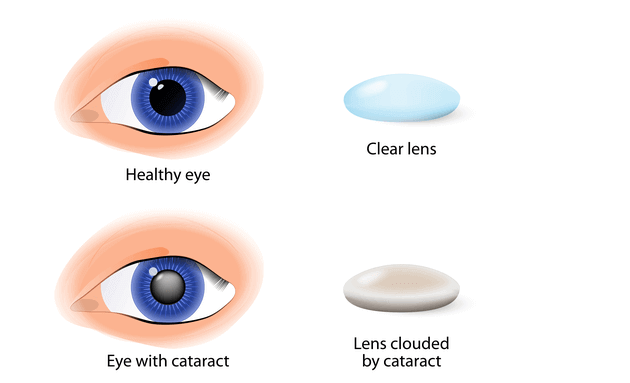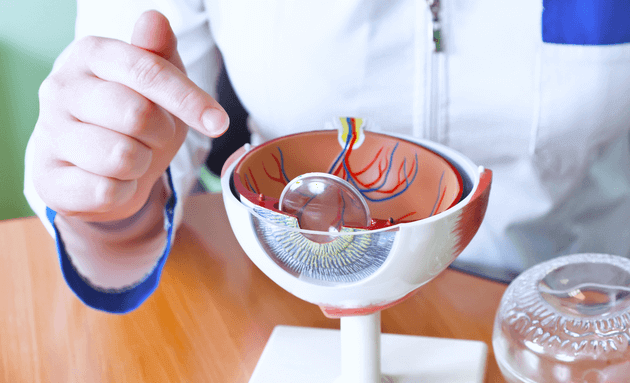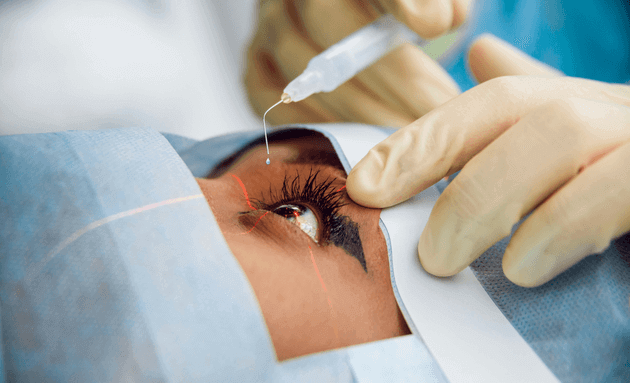
What to Ask Your Doctor When You Get a Cataract
Do you have a cloudy vision and everything seems slightly foggy? If you have crossed 50 years then this could be a warning sign of a growing cataract.
What is a Cataract?

A cataract is a clouding of the normally clear lens of your eye, which progressively goes opaque. For people who have cataracts, seeing through cloudy lenses is a bit like looking through a frosty or fogged-up window. Clouded vision caused by cataracts can make it more difficult to read, drive a car (especially at night) or see the expression on a friend's face.
Common Symptoms
Blurry vision, light sensitivity, double or diffused vision - these are some of the classic symptoms of a cataract. In addition, you might also find that colours might start to seem faded as well as an increase in the number of your prescription glasses.
Risk factors
Part of it has to do with ageing and genes but diabetes, obesity, smoking, excessive alcohol and high blood pressure are strong lifestyle triggers. Medical conditions like previous eye surgery or injury and prolonged use of corticosteroids are also causal factors for cataracts.
The incidence of blindness caused by cataracts is high in India but timely intervention can save your vision. Surgical intervention is common but not always immediate. Discuss your options with your doctor.
Cataract surgery is quite common and safe. Unless there is some complication, you might not be required to stay in the hospital for the day. There are four key stages which you need to speak to your doctor about:
Stage 1: When will you need surgery?
If you are not opting for surgery, confirm with your doctor that you will be able to read, do daily chores and if it is safe for you to drive.
Make sure you get your eyes examined regularly and look out for any deterioration of symptoms. If you discover that the symptoms are acute and not addressable by non-surgical treatment then surgery might be the best course of action.
Stage 2: Preparing for surgery

Understand from your doctor how will the surgery help your vision. If required in both eyes, you need to confirm whether the doctor will operate on one eye at a time or both together and plan your schedule accordingly.
Just before surgery, your doctor might conduct some tests, ask you to stop some medications and give dietary do’s and don’ts. Get all these details for your case. You will not be able to drive back the same day so make sure someone accompanies you. Based on the hospital/clinic facilities, make a list of things you will need to carry.
Stage 3: What will happen during the surgery

As mentioned, cataract surgery has advanced a lot and is quite hassle-free. You might still need to ask some questions to get post-operative clarity. You can ask how long will the surgery take and what type of anaesthesia will be used for your case. An important thing to know is whether you will be getting a lens implant and if so, which one.
The surgery might be common but each person’s medical situation is different and therefore, understand the risk factors for yourself.
Stage 4: What to expect after the surgery
Your vision will improve gradually after the surgery. Speak to your doctor about immediate things to do and not to do, to ensure quick healing. For example, whether you will need a patch, can you wash your face with water, when can you start driving and such. Usually, doctors give a thorough list, which covers most of these questions. Confirm the follow-up appointment date.

